So, you’re looking to catch the bloom of the stunning wildflowers in Utah? You’ve come to the right page to find all the info you need– including the time of year to see them and the best time of day to catch the gorgeous mountain lighting.
Before we head on, it’s important that I remind anyone reading this to pack in, pack out (pick up your trash!), leave the area more beautiful than we you came, and to stay on the paths to avoid hurting the vegetation. Keep Utah naturally beautiful!
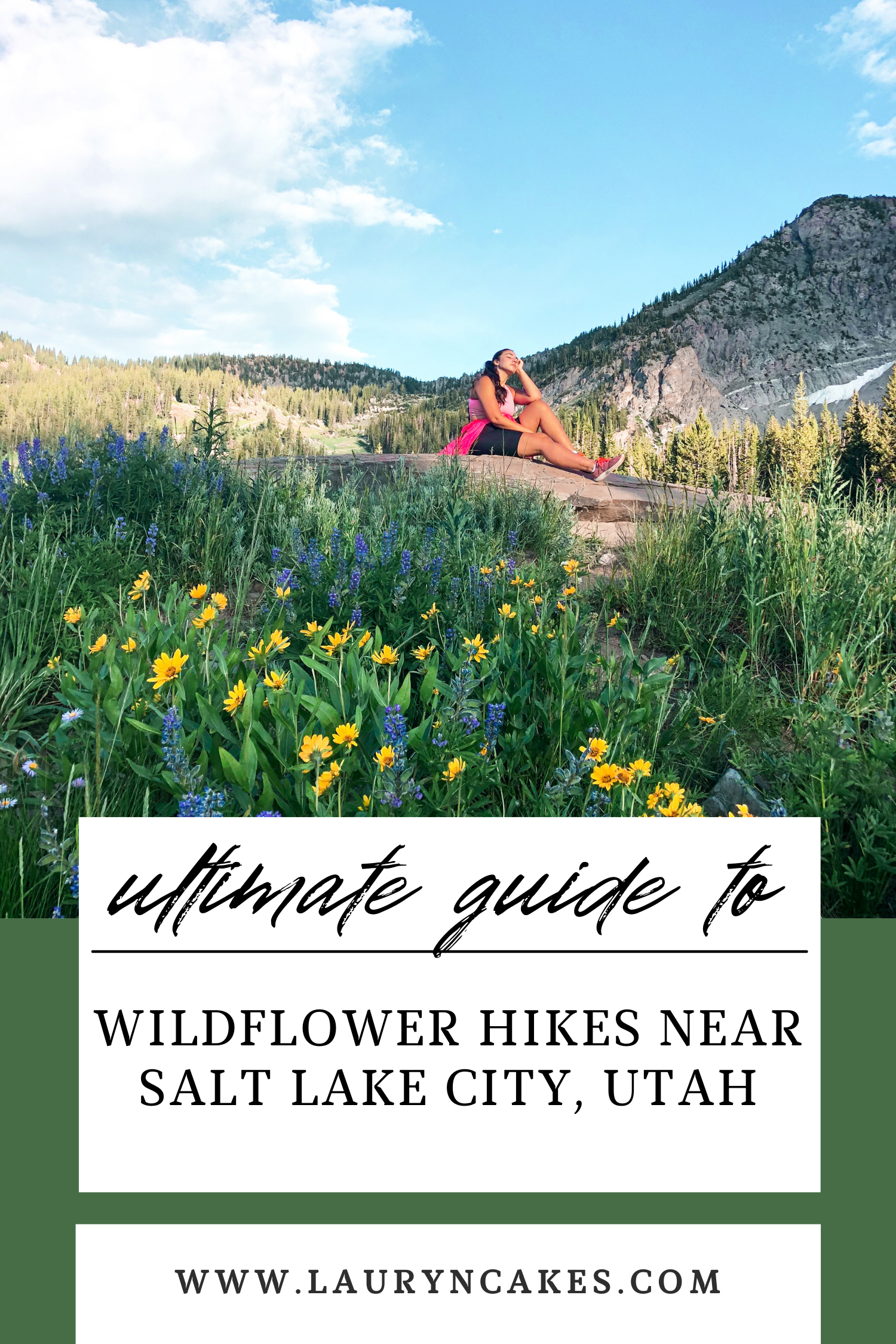
History of Albion Basin Flowers
The gorgeous area of Albin Basin, up Little Cottonwood Canyon, has long had blooms pop-up mid-summer. With the growth of social media, this spot in the Wasatch-Cache National Forest became wildly popular as droves of people visited to catch a glimpse of the Instagram-worthy fields. Located above Alta Ski Resort and Snowbird, right next to one of the Utah mountain towns, the walkable trail is in a glacially-carved out canyon. If you’re into small-town, recreation vibes (towns similar to Asheville), you will love this area! Here, you will find wildlife, as a well as over 100 species of plant life. At the peak of summer, thousands of flowers bloom– most noticeably the Columbine, Penstemons, Beardtongue, Jacob’s Ladder, Lupine, and Paintbrush.
Pro Tip: Use the app/website iNaturalist to help identify plants and insects. Simply take a photo, upload onto the app, and see if the AI can name the plant/flower for you. If not, a local expert or scientist can come in and identify it for you. This joint initiative helps observe nature and biodiversity in local areas and across the globe.
When do the Albion Basin Wildflowers Bloom
Unlike the Utah Cherry Blossom trees that bloom near the Capitol in the spring, Albion Basin comes alive in the summer. Of course, the bloom of wildflowers in Utah highly depends on the snowfall the winter before and how hot the mountain temps get in the summer. Typically, Mid-July through early-August is when you can catch the plants springing up with flowers. For peak bloom, try to hit around July 15-25. This will mean most of the flowers will be colorful and will not have wilted yet.
Pro Tip: Look at photos and comments of users on AllTrails to see what trail conditions are like. Many people will let you know when the flowers are blooming, or even when trails close for the winter snow (check out this post for activities to do in Salt Lake City during the winter). Below, you can find AllTrails linked for the nearby wildflower hikes.
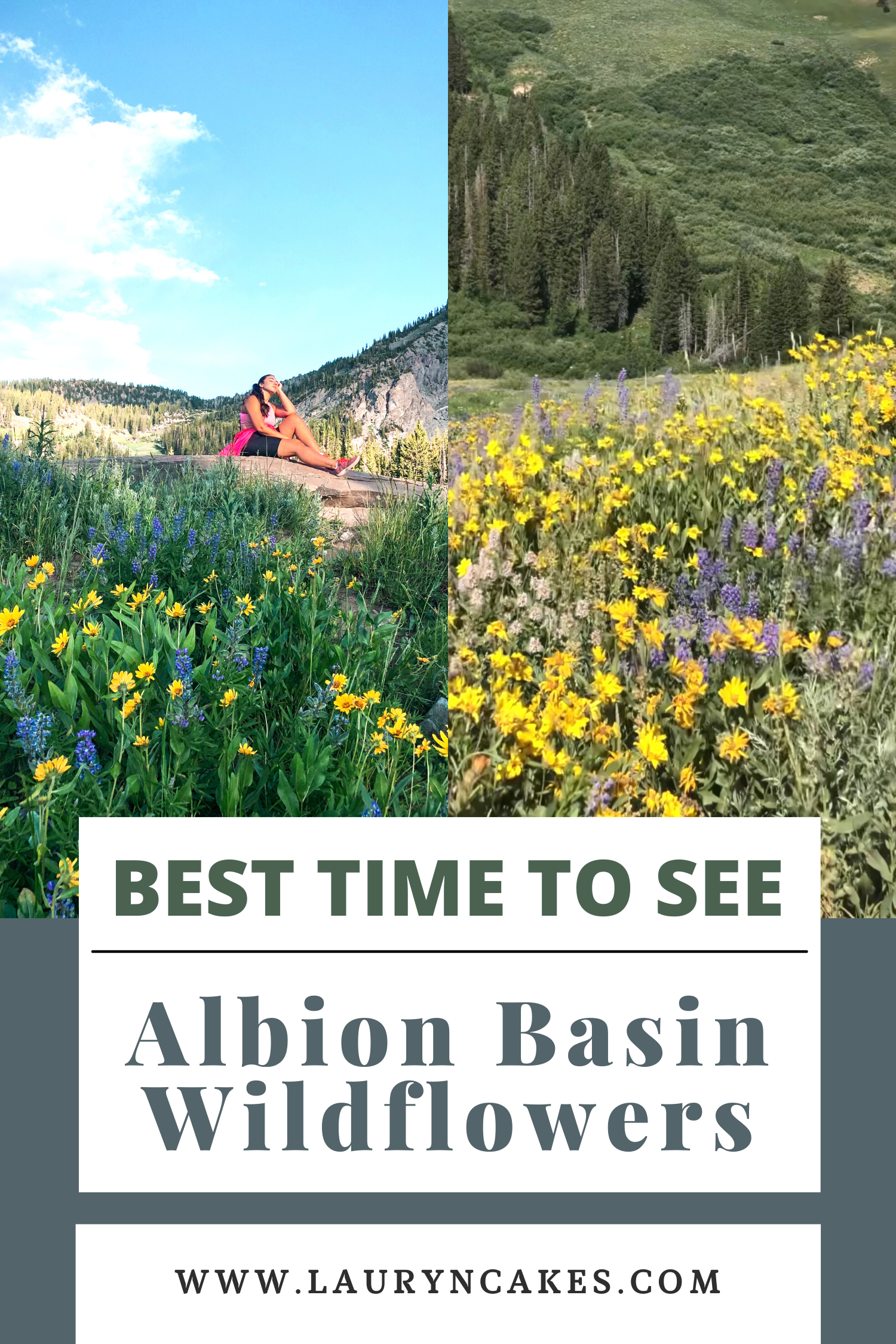
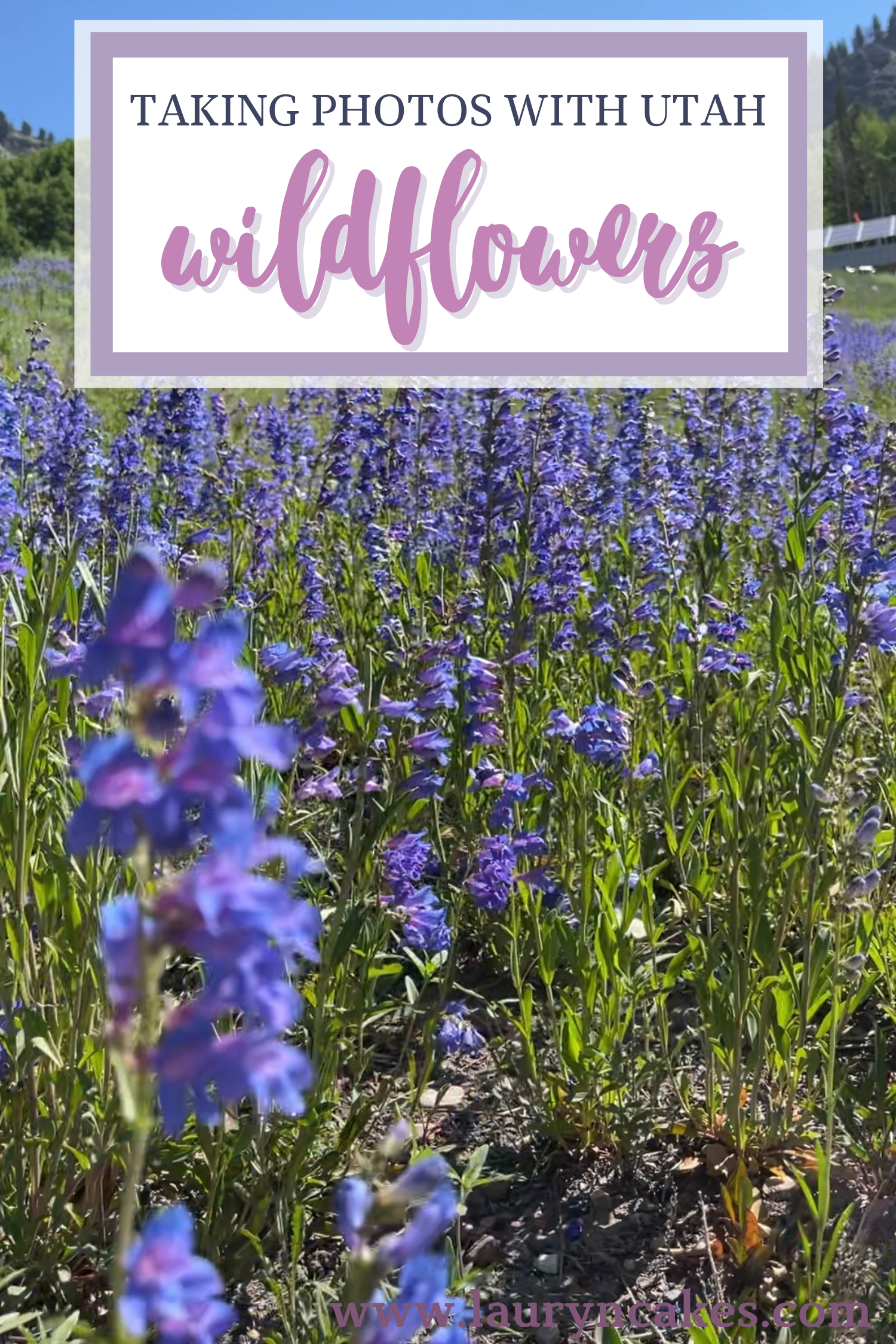
Don’t Walk on the Wildflowers in Utah
Unfortunately, after the gain in notoriety, many of the Albion Basin flowers were trampled. Naive crowds going off trail have caused the plants to die from being stepped on. Picking wildflowers, and heading off the designated path, can lead to the destruction of nature and stagnate growth cycles for years to come. Do your part and keep on the dirt/rock paths, avoid walking on plant life, and allow the beautiful flowers to grow without picking them.
Pro Tip: A designated trail will be obvious. It’s a dirt path, sometimes with rocks, and often marked with ropes, strings, or signs. If you find yourself asking, “am I on the trail?” at Albion Basin, chances are that you are not and should avoid stepping on plant life!
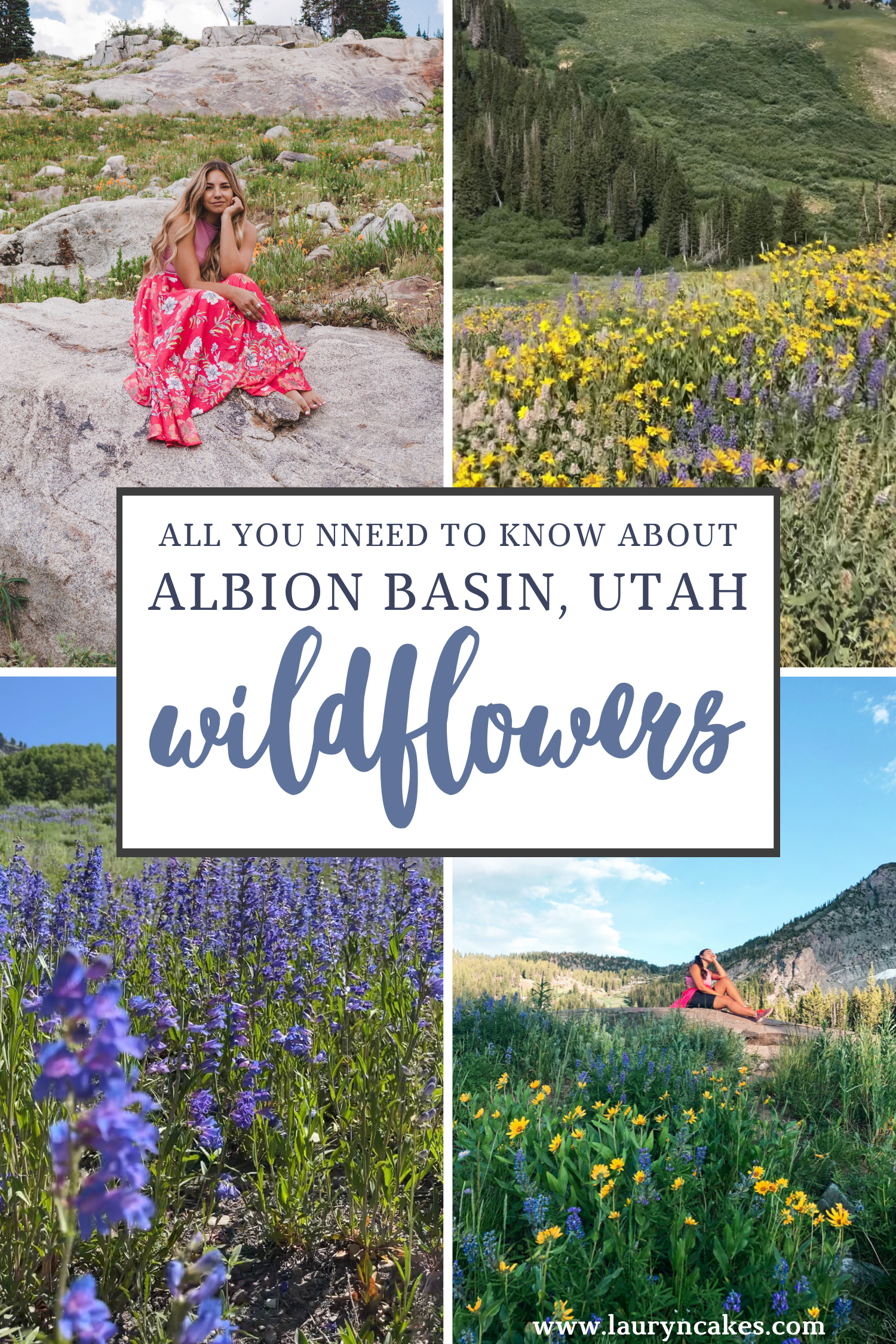
Where to Park Near Albion Basin
Ultimately, there are two parking lots that make it easy to get to the views in Little Cottonwood Canyon. For free parking, park in the huge lot outside of Albion Grill, which has available navigation on Maps/Google Maps. You can then access the Albion Basin Trail by walking past the Alta Ski School (towards the lift). The trail should be clearly marked.
Pro Tip: For less of a hike, you can park higher up via the Summer Road. It’s a $10/car fee to limit congestion, but will take you to the Cecret Lake Trail where you can hike upwards towards the lake, or down towards the basin to see the flower meadows.
Best Time of Day to Visit Wildflowers for Photos
Although it depends on the type of weather you are looking for, there are certainly better times to capture the beauty of the wildflowers in Utah on camera. Since the basin is surrounded by tall mountains, it is important to note that sunlight will be seen for fewer hours a day than you might down in the Salt Lake Valley. For blue-hour photos with the flowers, you will want to reach the basin no later than 9 am. The hike in can take anywhere from 40 min to an hour, so arriving at 6 am would be ideal to capture the morning light for a few hours.
To achieve golden lighting, you will want to be to Alta by 4:30 pm and to the basin no later than 6. Mid-day is going to have harsh overhead lighting and heat making it difficult for photographers and hikers alike.
Pro Tip: Commercial photographers and anyone using professional photography equipment will need to pay for a permit.
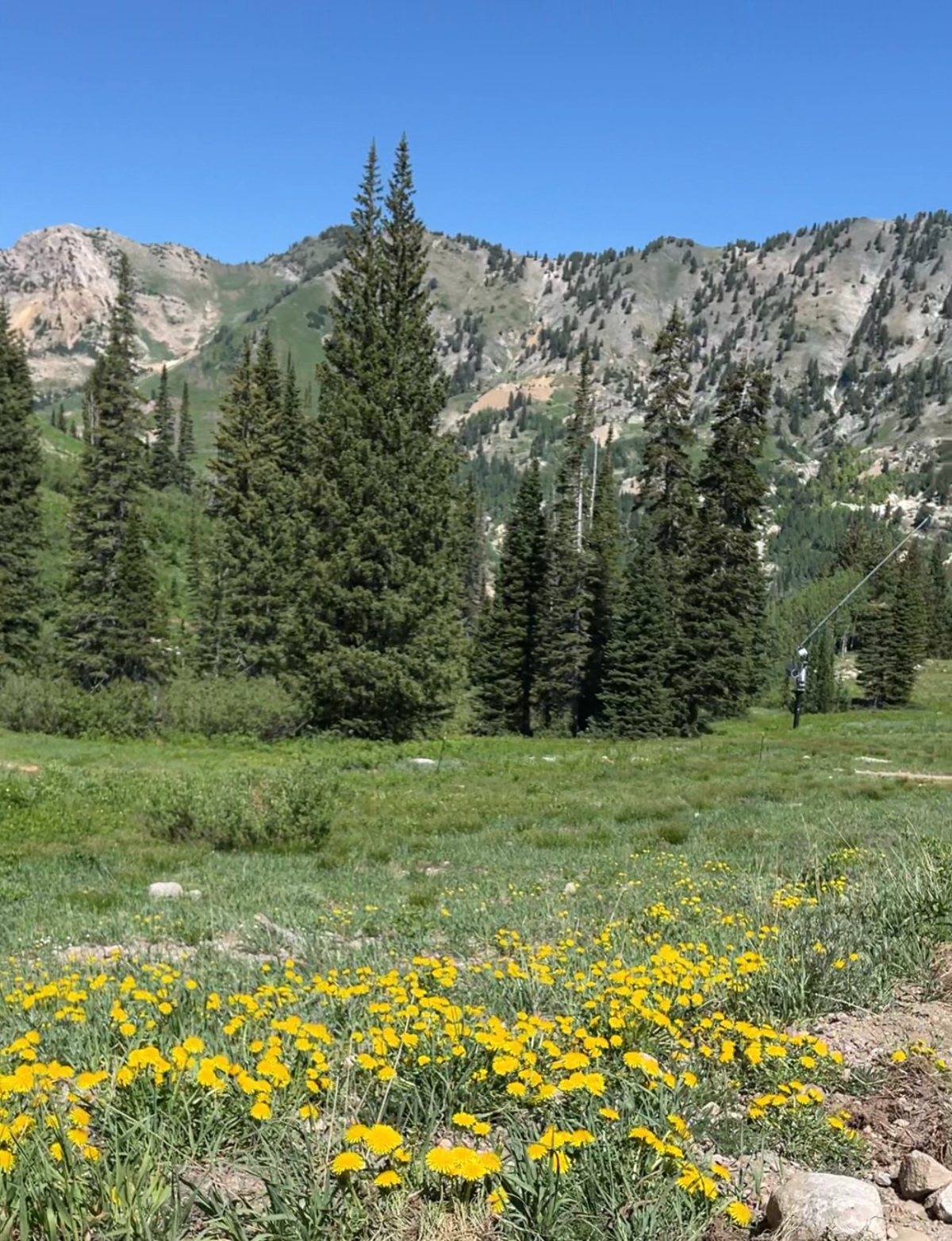
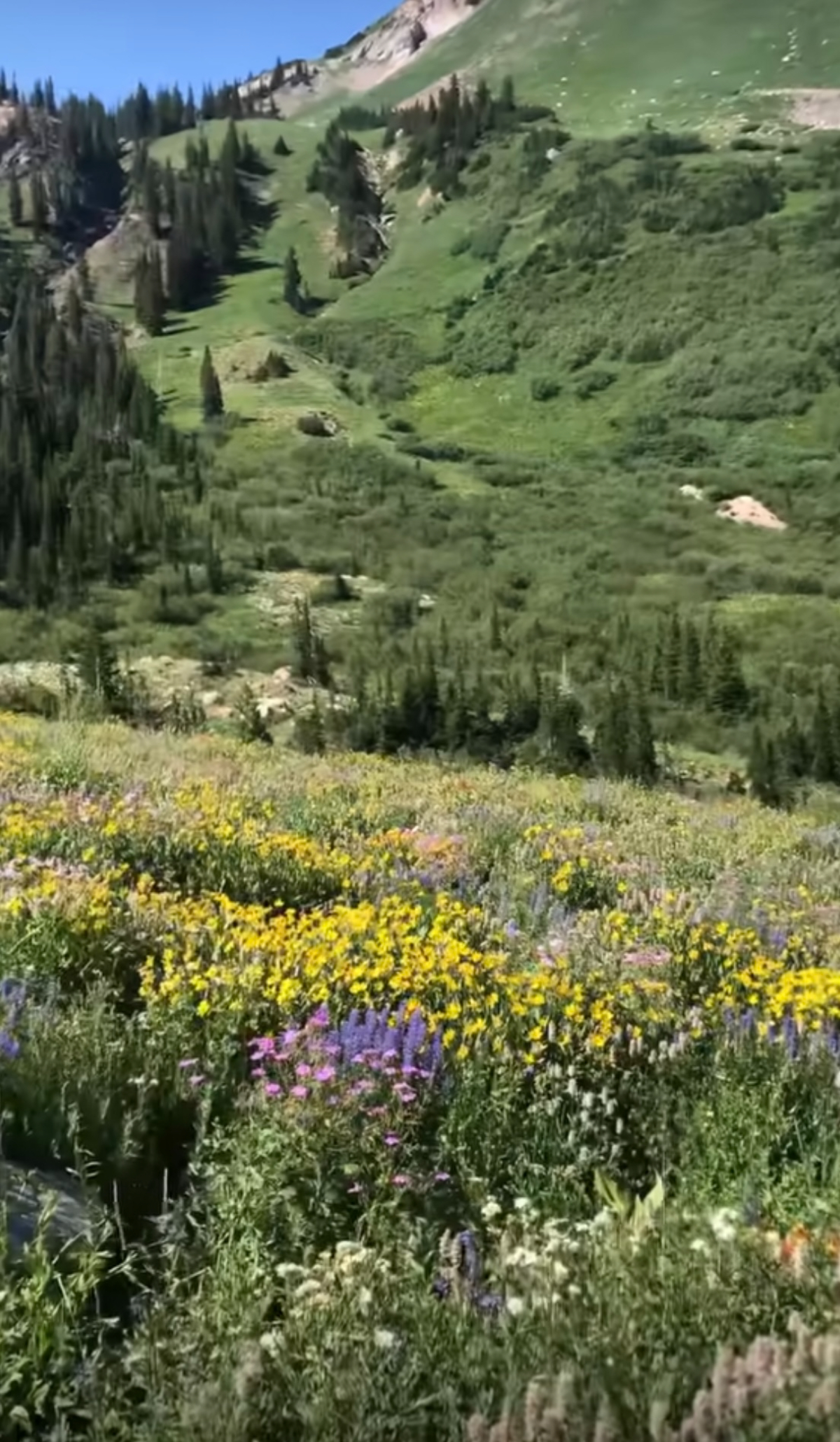
Hikes Near Wildflowers in Utah
There are quite a few hikes that showoff wildflowers in Utah. Most are marked with signage and have maintained paths for safety. However, not all are accessible, good for children, or open to dogs. Check out the trails below for more information:
- Albion Meadows Trail (easy, 3.6 mi out and back with 744 ft elevation gain) – passes through the wildflowers
- Cecret Lake Trail (easy, 1.8 mi out and back with 465 ft elevation gain) – above the wildflower meadows
- Cecret Lake from Albion Basin (moderate, 4.5 mi out and back with 1,213 ft elevation gain)
- Lake Catherine via Catherine Pass Trail (moderate, 3.9 mi out and back with 1,115 ft elevation gain)
- Prince of Wales Mine Trail (moderate, 5 mi out and back, with 1,381 ft elevation gain)
- Monte Cristo via Cardiff Pass Trail (hard, 5.3 mi out and back, with 2,477 ft elevation gain)
- Alta-Brighton Lakes Loop (moderate, 8 mi out and back, with 2,395 ft elevation gain)
PIN THIS POST FOR LATER
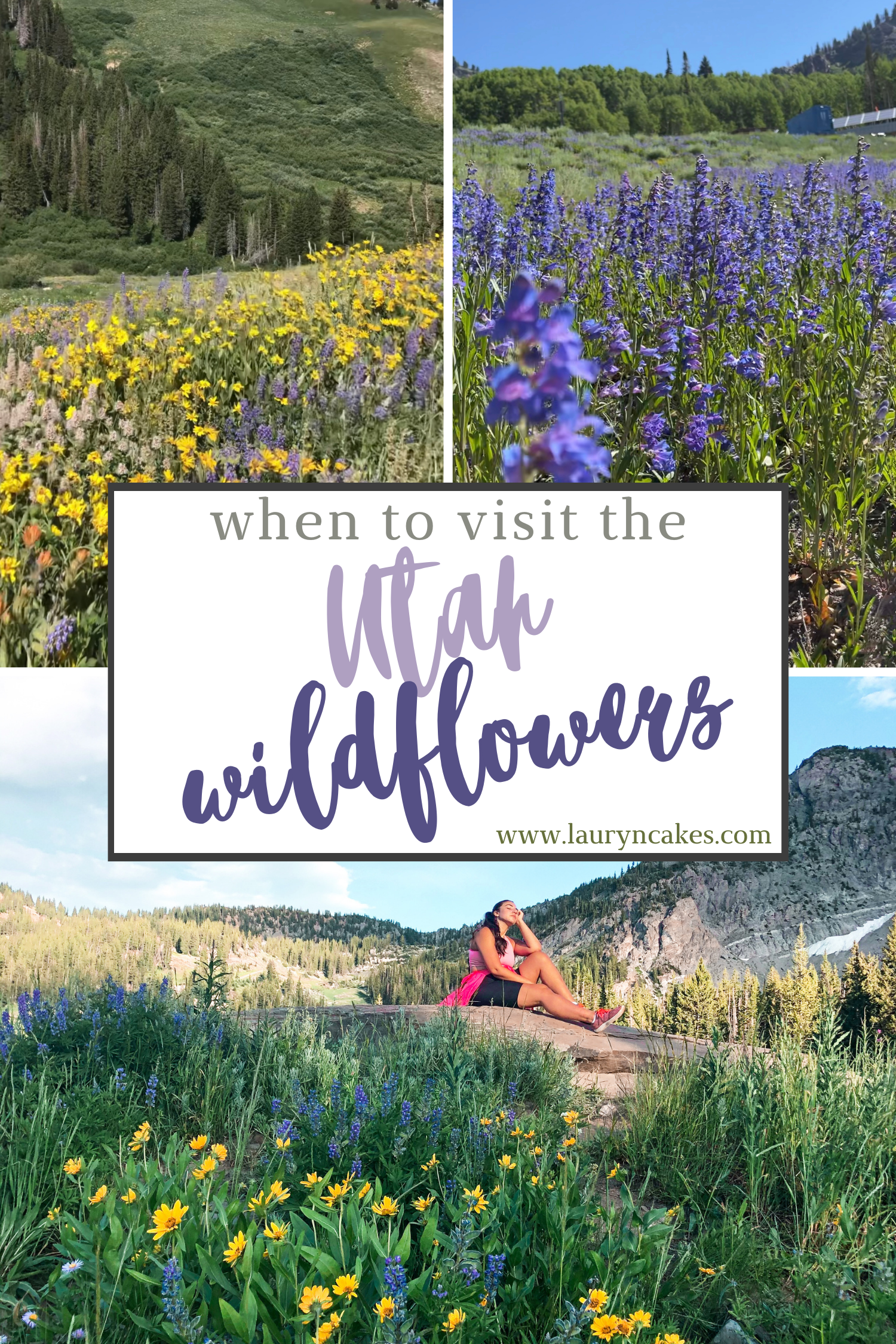



What do you think?